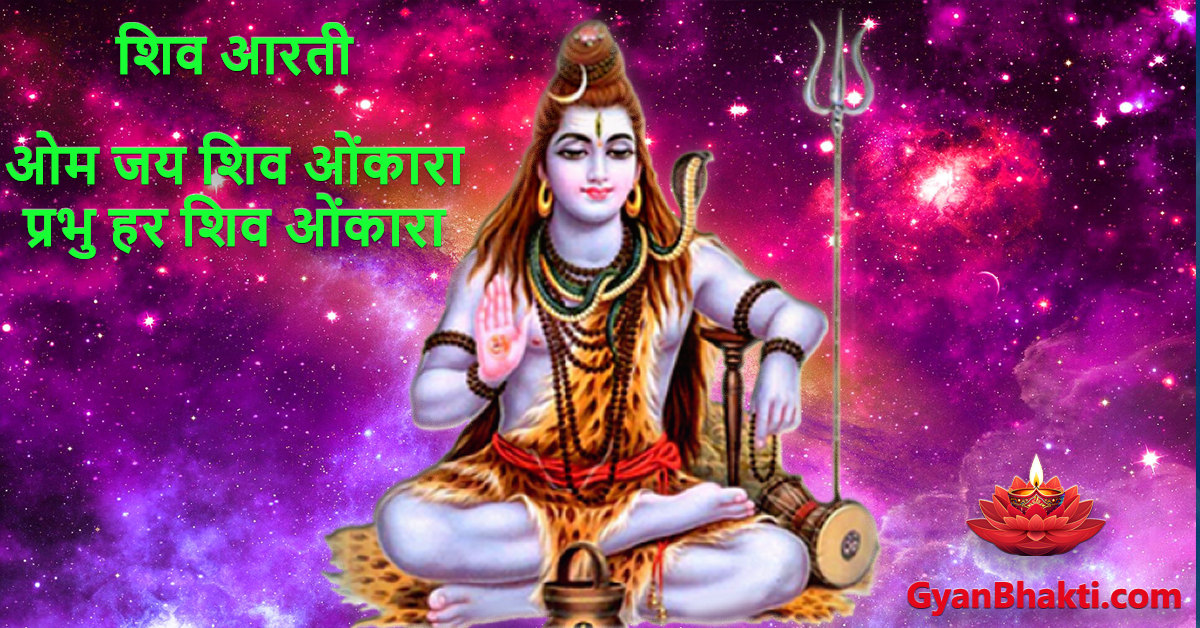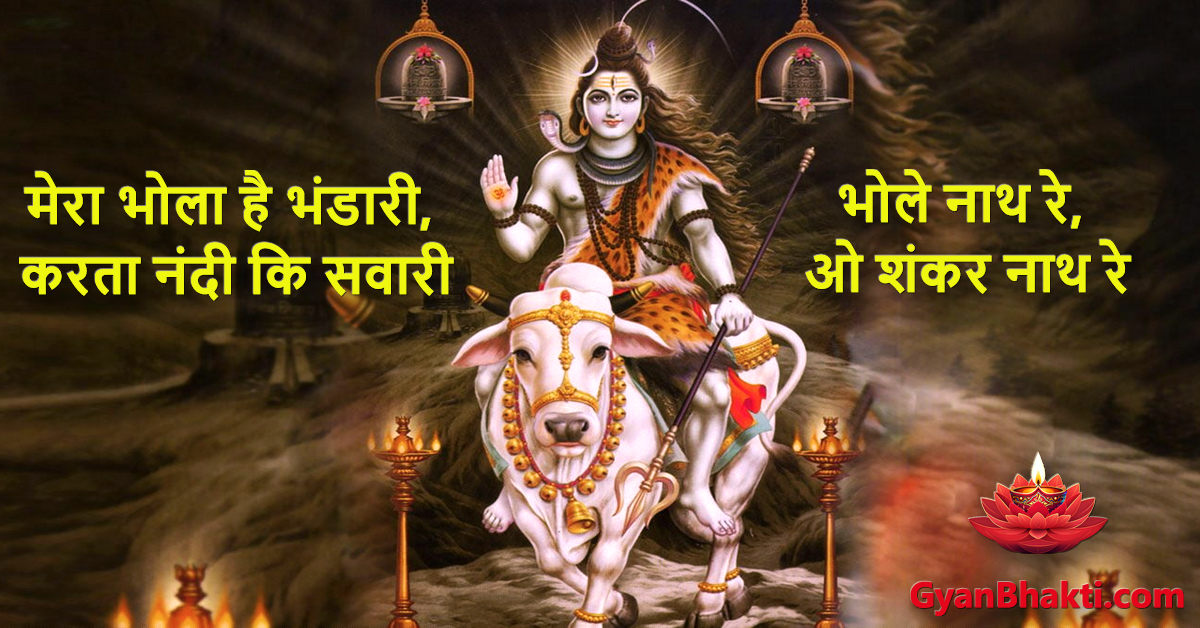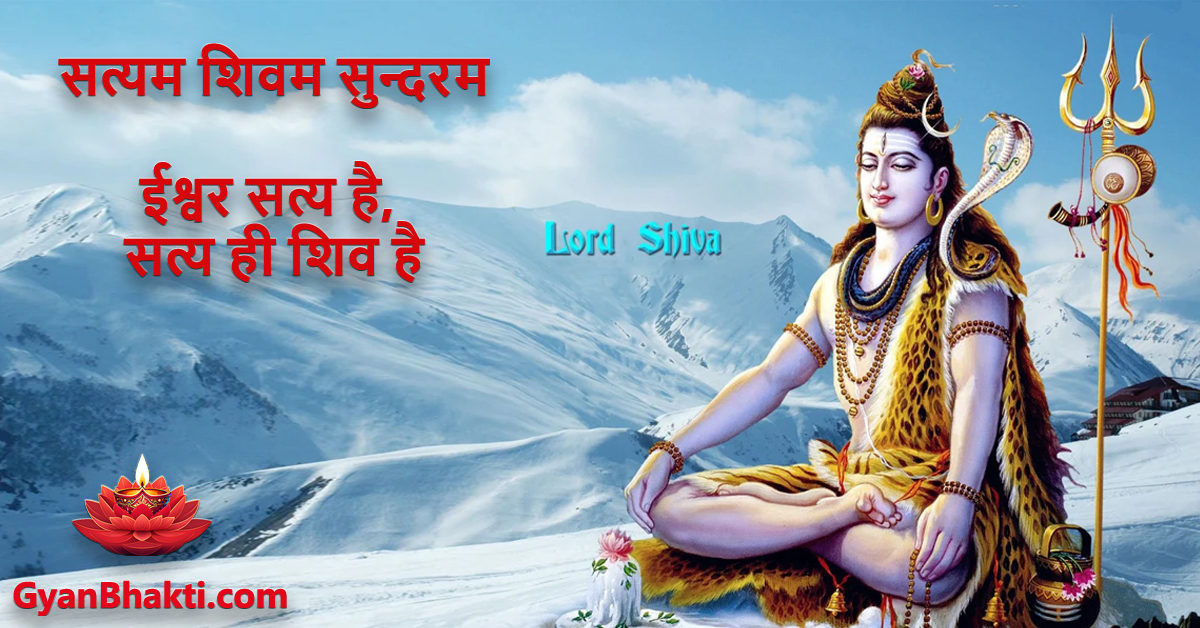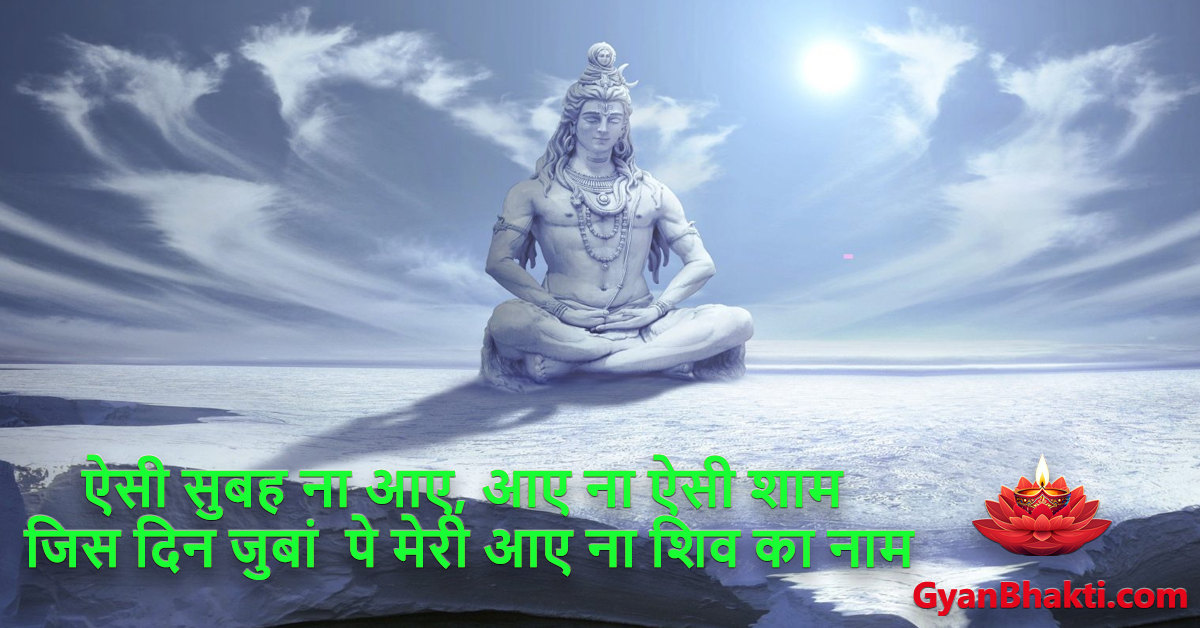Aarti Kunj Bihari Ki – Shri Krishna Aarti
On this page of Lord Krishna Aarti, Aarti Kunj Bihari Ki, first English lyrics of Aarti are given.
And then, the meaning and spiritual significance of the lines of “Aarti Kunj Bihari Ki” are explained.
Aarti Kunj Bihari ki,
Shri Girdhar Krishna Murari ki
[Aarti Kunj Bihari ki,
Shri Girdhar Krishna Murari ki]
Gale mein baijanti mala
Bajaave murli madhur balaa
Shravan mein kundal jhalakala,
Nand ke Nand, Shri Anand kand,
Mohan Brij chand
Radhika Raman Bihari ki,
Shri Girdhar Krishna Murari ki
[Aarti Kunj Bihari ki….]
Gagan sam ang kanti kali
Radhika chamak rahi aali
latan mein thadhe banmali
Bhramar si alak, kasturi tilak,
chandra si jhalak
Lalit chhavi Shyamaa pyari ki,
Shri Giradhar Krishna Murari ki
[Aarti Kunj Bihari ki….]
Kanakmay mor mukut bilse
Devta darshan ko tarase
Gagan so suman rasi barse
Baje murchang, madhur
mirdang, gwaalin sang
Atul rati gop kumaari ki.
Shri Giradhar Krishna Murari ki
[Aarti Kunj Bihari ki….]
Jahaa se pragat bhayi Ganga
Kalush kali haarini Shri Ganga
(Or – Sakal mal haarini Shri Ganga)
Smaran se hot moh bhangaa
Basi Shiv sheesh, jataa ke
beech, haraye agh keech
Charan chhavi Shri Banwari ki,
Shri Giradhar Krishna Murari ki
[Aarti Kunj Bihari ki….]
Chamakti ujjawal tat renu
Baj rahi Vrindavan benu
Chahu disi gopi gwaal dhenu
Hansat mridu mand, chandani
chand, katat bhav phand
Ter sun din bhikhaari ki,
Shree Girdhar Krishna Murari ki
[Aarti Kunj Bihari ki….]
Aarti Kunj Bihari ki, Shri Girdhar Krishna Murari ki
Aarti Kunj Bihari ki, Shri Girdhar Krishna Murari ki
Aarti Kunj Bihari Ki – Krishna Aarti
Krishna Bhajan
- Aisi Lagi Lagan Meera Ho Gayi Magan
- Aarti Kunj Bihari Ki - Shri Krishna Aarti - with Meanings
- Achyutam Keshavam Krishna Damodaram
- Mera Aapki Kripa Se Sab Kaam Ho Raha Hai
- Nand Ke Anand Bhayo, Jai Kanhaiya Lal Ki
- Madhurashtakam - Adharam Madhuram
- Main Aarti Teri Gaun, O Keshav Kunj Bihari
- Sanwali Surat Pe Mohan - Lyrics with Meanings
- Hey Gopal Krishna, Karu Aarti Teri
- Shyam Rang Me Rangi Chunariya
- Bata Mere Yaar Sudama Re
- Kali Kamli Wala Mera Yaar Hai
- Meri Vinti Yahi Hai Radha Rani
- Jari Ki Pagdi Bandhe Sundar Aankhon Wala
- Are Dwarpalo Kanhaiya Se Keh Do
- Phoolon Me Saj Rahe Hai, Shri Vrindavan Bihari
- Dena ho to Dijiye Janam Janam ka Saath
- Mujhe Apne Hi Rang Me Rang Le
- Natwar Nagar Nanda, Bhajo re Man Govinda
Aarti Kunj Bihari Ki – Shri Krishna Aarti – Spiritual Meanings
Aarti of Kunj Bihari is an aarti of Lord Krishna, who is also known as Kunj Bihari or Kanhaiya. This aarti is sung by devotees during the Hindu festival of Janmashtami, when the birth of Lord Krishna is celebrated.
The bhajan describes the beauty and charm of Lord Krishna, who wears a garland of flowers, plays the flute, and dances with his beloved Radha. The bhajan also expresses the love and devotion of the singer towards Lord Krishna, who is the protector and savior of his devotees. Aarti Kunj Bihari Ki bhajan is one of the most popular and widely sung aartis of Lord Krishna.
The spiritual meanings of Aarti Kunj Bihari ki is as follows –
Aarti Kunj Bihari Ki, Shri Girdhar Krishna Murari Ki
“Kunj Bihari” is a name for Lord Krishna, the one who attracts and mesmerizes everyone with his divine presence.
This line is the first line of Lord Krishna’s aarti, in which he is referred to as Girdhara (because Lord Krishna lifted Mount Govardhan with his one finger) and Murari (the slayer of the demon Mura).
This line praises Lord Krishna as Govardhan Dhari, Devaki’s son, shree Giridhar and the destroyer of evil.
Gale Mein Baijanti Mala
“Gale Mein” means around the neck, and “Baijanti Mala” is a celestial garland made of small white beads, often associated with Lord Vishnu or Krishna. It symbolizes the divine adornment of Lord Krishna.
Bajaave Murli Madhur Balaa
“Bajaave” means playing, “Murli” refers to Lord Krishna’s flute, and “Madhur Balaa” indicates the melodious and sweet sound of his flute. Lord Krishna is often depicted as a charming flutist, captivating the hearts of his devotees through the enchanting music of his flute.
Shravan Mein Kundal Jhalakala
“Shravan” means the ear, and “Kundal” are the earrings. This line describes the beauty of Lord Krishna’s earrings, which glitter and sway as he plays his flute.
Nand Ke Nand, Shri Anand Kand, Mohan Brij Chand
These lines describe Lord Krishna as the beloved son of Nanda (his foster father), the source of supreme bliss (Ananda Kanda) and the most beloved and blissful of the land of Brij (his childhood home). ,
Radhika Raman Bihari Ki
Radhika Raman is another name for Lord Krishna, indicating that he is the beloved of Radha, and “Bihari” refers to the one who enjoys pastimes (Vihari) in the gardens (kunj), symbolizing his playful and loving nature.
Gagan Sam Ang Kanti Kali
This line describes Lord Krishna’s divine beauty, comparing his dark complexion to the radiant glow of a dark cloud amidst the blue sky (gagan).
Radhika Chamak Rahi Aali
It symbolizes the glory and splendor of Radha, who is often depicted as a symbol of devotion and love for Lord Krishna.
Latan Mein Thadhe Banmali
“Latan” means the waist, and “Banmali” is one of the names of Lord Krishna. This line portrays Lord Krishna with a peacock feather tucked into his waist, as it is commonly depicted in his images.
Bhramar Si Alak, Kasturi Tilak, Chandra Si Jhalak
This verse describes Lord Krishna’s appearance as enchanting as a bumblebee (Bhramar), with a musk-scented (Kasturi) tilak on his forehead, and shining like the moon (Chandra).
Lalit Chhavi Shyama Pyari Ki
This line praises the charming and lovely form (Chhavi) of the beloved Shyama (another name for Krishna) and highlights his endearing nature.
Kanakmay Mor Mukut Bilse
“Kanakamay” means made of gold, “Mor Mukut” means equipped with peacock feathers. In this line, Lord Krishna is described as wearing a crown with peacock feathers or wearing a golden crown like a peacock.
Devta Darshan Ko Tarase
“Devta” means gods or deities, and “Tarase” means long for or yearn. This line conveys that the gods themselves long to have the divine sight of Lord Krishna.
Gagan So Suman Rasi Barse
Gagan means the sky, “Suman” means flowers, and “Barse” means shower. This verse illustrates how, from the heavenly realms, flowers shower like gentle rain upon Lord Krishna as an expression of adoration.
Baje Murchang, Madhur Mirdang, Gwaalin Sang
“Baje” means playing, “Murchang” is a musical instrument similar to a flute, “Madhur Mirdang” refers to sweet-sounding mridang (a type of drum), and “Gwaalin Sang” means along with the cowherd girls. This line portrays a joyous scene with the enchanting music of flutes and drums being played while the cowherd girls sing and dance in Lord Krishna’s divine presence.
Atul Rati Gop Kumaari Ki
“Atul Rati” means incomparable lover, and “Gop Kumaari” refers to the young cowherd girls. This verse highlights Lord Krishna’s extraordinary love and affection for the cowherd girls of Vrindavan.
Jahaa Se Pragat Bhayi Ganga
Kalush Kali Haarini Shri Ganga (or Sakal Mal Haarini Shri Ganga)
“Jahaa Se Pragat” means from where it appeared, and “Ganga” refers to the river Ganges. “Kalush Kali Haarini” means remover of impurities, and “Shri Ganga” refers to the sacred Ganges River. This verse further emphasizes that the Ganges, by its very presence, purifies all sins.
Smaran Se Hot Moh Bhangaa
“Smaran Se” means through remembrance, and “Moh Bhangaa” means the delusion is shattered. This line indicates that merely remembering Lord Krishna can dispel all illusions and attachments.
Basi Shiv Sheesh, Jataa Ke Beech, Haraye Agh Keech
This verse describes Lord Krishna as the one who holds the sacred Ganges in his matted locks, and by doing so, he washes away the sins of all beings.
Charan Chhavi Shri Banwari Ki
“Charan Chhavi” refers to the divine feet, and “Shri Banwari” is another name for Lord Krishna. This line glorifies the divine form of Lord Krishna and his sacred feet.
Chamakti Ujjawal Tat Renu
“Chamakti” means sparkling, “Ujjawal” is radiant, and “Tat Renu” refers to the dust of Vrindavan. This verse describes how the dust of Vrindavan is sparkling and shining brightly.
Baj Rahi Vrindavan Benu
This line refers to the flute being played in Vrindavan, Lord Krishna’s cherished abode.
Chahu Disi Gopi Gwaal Dhenu
“Chahu Disi” means in all directions, “Gopi Gwaal” are the cowherd girls and boys, and “Dhenu” refers to the cows. This line illustrates how the entire Vrindavan resounds with the joyous sounds of the cowherd girls, boys, and cows.
Hansat Mridu Mand, Chandani Chand, Katat Bhav Phand
The beauty and charm of Lord Krishna is described in this sentence. Sri Krishna is described as smiling, soft-spoken, like the moon shining like moonlight, and by his support one is freed from all the entanglements of the world. This sentence praises the divine form of the Lord and encourage the devotees to worship Him. This shloka also portrays the picturesque scene of Lord Krishna laughing softly in the light of the moon.
Ter Sun Din Bhikhaari Ki
In this sentence, devotees surrender all their sorrows at the feet of Shri Krishna and pray for his blessings, seek the blessings of the his grace.
In summary, the lyrics of “Aarti Kunj Bihari Ki” beautifully praise the divine attributes and charm of Lord Krishna. The bhajan describes his exquisite appearance, his association with the river Ganges, his ability to remove all impurities, his love for the cowherd girls, and the joyous atmosphere in Vrindavan where he plays his enchanting flute.
“Aarti Kunj Bihari Ki” captures Lord Krishna’s playful and loving nature, his melodious flute playing, his mesmerizing presence and the divine experience of being in the presence of Lord Krishna as well as the beauty of Vrindavan.
Krishna Bhakti
Aarti Kunj Bihari ki,
Shri Girdhar Krishna Murari ki
Shish mukut aur mor pankh, gal vaijanti maal.
Yah chhabi man mein bas rahi, yashoda ke gopaal.
Teri mere saanvre, yug yug ki hai preet.
Main charanon ka daas hoon, too mere man ka meet.
Rog shok sankat hare, baadha nikat na aaye.
Hai prataap hari naam mein, jo leve tar jaaye.
Raam vahi hai, krishna vahi, lakshman vahi balaraam.
Treta dvaapar ki chhabi, hai ye chaaro dhaam.
Gidh, ganika aur ajaamil ko tum ne taara hai.
Gaj ko mukti dilai, graah ko ja maara hai.
Shabari bhilani aur ahilya ko toone hi to ubaara hai.
Laaj draupadi ki bachaayi, too hi to rakhwara hai.
Aarti Kunj Bihari ki,
Shri Girdhar Krishna Murari ki
Gale mein baijanti mala
Bajaave murli madhur balaa
Shravan mein kundal jhalakala,
Radhika Raman Bihari ki
Shri Girdhar Krishna Murari ki
Krishna Bhajan
- Meethi Meethi Mere Saanware Ki Murli Baaje
- Makhan Doongi Re Sawariya Thodi Bansi To Baja
- Shyam Bansi Bajate Ho Ya Mujhe Bulate Ho
- Mukut Sir Mor Ka Mere Chit Chor Ka
- Chhoti Chhoti Gaiya, Chhote Chhote Gwal
- Kanha Re Thoda Sa Pyaar De
- Door Nagari Badi Door Nagari
- Mujhe Charno Se Laga Le, Mere Shyam
- Jag Mein Sundar Hain Do Naam
- Bankey Bihari Mujhko Dena Sahara
- Shree Baanke Bihari Teri Aarti Gaoon
- Nazar Mein Rehte Ho, Magar Tum Nazar Nahi Aate
- Fasi Bhawar Me Thi Meri Naiya
- Sawre Ko Dil Me Basa Kar To Dekho
- Sancha Naam Tera Tu Shyam Mera
- Aasra Is Jahan Ka Mile Na Mile
- Har Saans Mein Ho Sumiran Tera
- O Palan Hare Nirgun Aur Nyare
- Shyama Tere Charno Ki Dhool
- Govind Jai Jai, Gopal Jai Jai
- Meri Lagi Shyam Sang Preet
- Mujhe Shyam Sunder Ki Dulhan Bana Do
- Yeh To Prem Ki Baat Hai Udho
- Radhe Radhe Japa Karo






